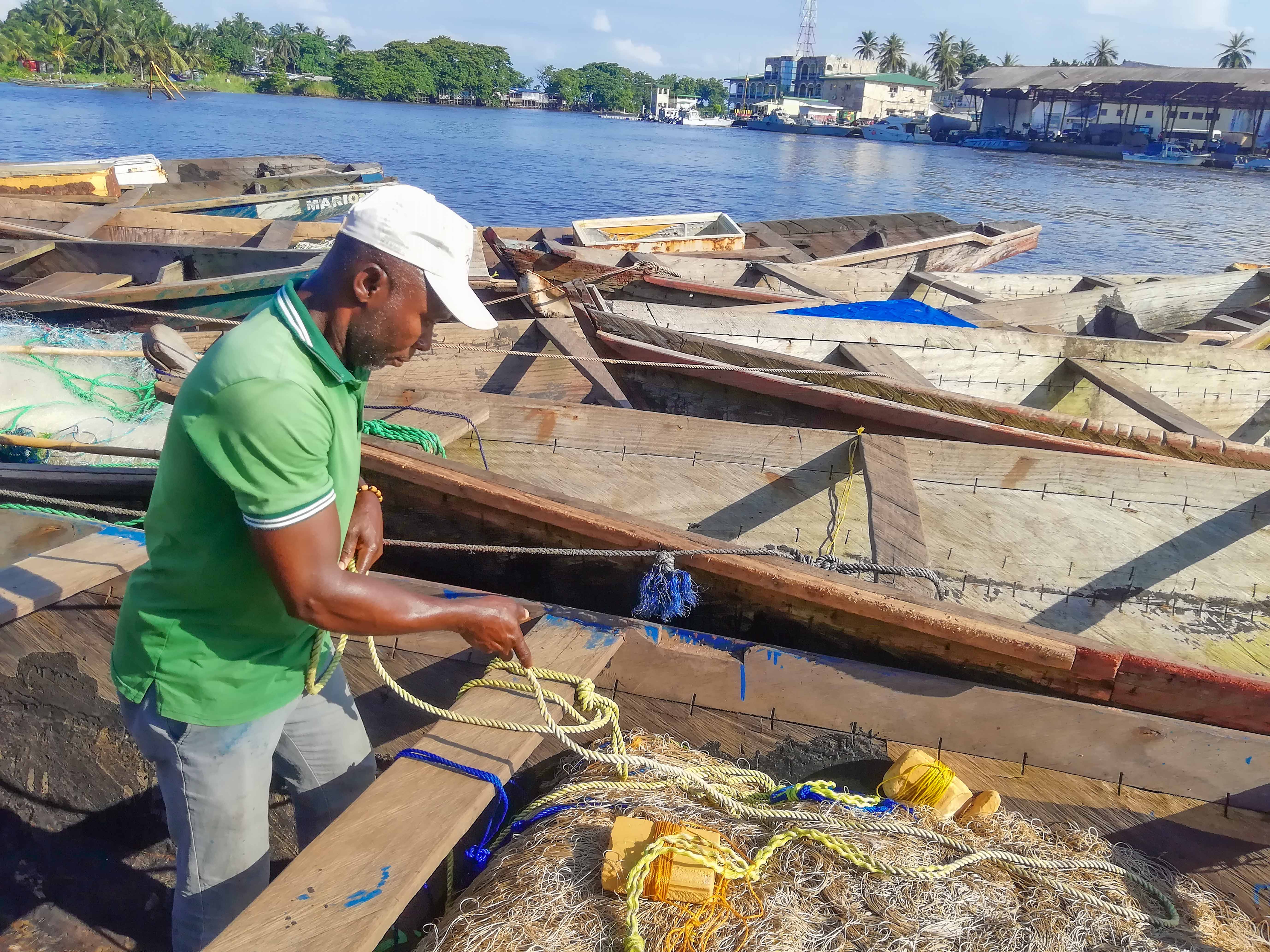The fight against IUU fishing in Cameroon cannot be won without journalists... by raising awareness and exposing wrongdoing, journalists create accountability and pressure authorities to take action
In January 2023, Cameroon faced a devastating setback when its fishery products were banned from European Union (EU) markets due to its failure to combat illegal, unreported, and unregulated (IUU) fishing. Before this unprecedented ban, Cameroonian journalists were largely unfamiliar with the issue, but they have since risen to the challenge and become vital cogs in the fight against IUU fishing.
Until June 2023, Jabi Kati Chale, a passionate environmental journalist, was oblivious to the scourge of IUU fishing. While she had reported on plastic pollution in Cameroon's waters, the term "IUU fishing" was foreign to her. “I had no idea such a thing existed,” Chale, the anchor of the TV programme Nature's Corner, confesses to AJR.
However, a series of events would soon thrust this environmental crime into the spotlight. In January 2021, the European Union issued a "yellow card" to Cameroon, warning the country to intensify its fight against IUU fishing. This development sparked discussions, but it wasn't until January 2023, when the EU imposed a total ban on Cameroon's fishery products, that IUU fishing finally gained widespread media attention in the country.
Cameroon's coastline, which stretches over 400 km along the Gulf of Guinea, has unfortunately become a hotspot for IUU fishing. This nutrient-rich region, teeming with marine life, has fallen victim to the predatory practices of illegal fishing vessels, threatening the livelihoods of local communities and the delicate balance of the ecosystem.
Even more alarming is the rise of unrelated crimes thriving in Cameroon's waters due to IUU fishing. Fishing vessels are frequently involved in human trafficking
IUU Fishing and Cameroon’s Turmoiled Waters
Illegal, unreported, and unregulated fishing costs Cameroon an estimated XAF 20 billion (USD 33 million) annually, while the government spends at least XAF 102 billion (USD 165 million) per year on fish imports. These staggering figures underscore the significant economic toll of IUU fishing on the country.
A 2021 study by Maurice Beseng identifies zone infringement as the most prevalent illegal fishing issue in Cameroon, particularly among industrial fishermen. These industrial operations, often utilising trawlers and destructive gear, not only damage the equipment of artisanal fishermen but also threaten local livelihoods and disrupt marine ecosystems. This is in sharp contravention of Cameron's fishing regulations, which specify that industrial fishers must operate at a depth of 5.56 km (approximately 3 nautical miles), while artisanal fishers are restricted to fishing within 5.56 km from the shore. Additionally, deliberate marine pollution has emerged as a serious concern, with reports of Chinese industrial fishers using toxic chemicals to hasten the breakdown of bycatch, effectively covering their tracks.
Even more alarming is the rise of unrelated crimes thriving in Cameroon's waters due to IUU fishing. Fishing vessels are frequently involved in human trafficking; for instance, in September 2018, the Cameroonian navy intercepted three trawlers carrying 43 undocumented migrants.
Moreover, these vessels are often used for smuggling activities, including fuel from Nigeria, wildlife, arms, and cash, according to Beseng’s study. In 2020, a navy patrol intercepted two unregistered canoes carrying 90,000 litres of gasoline and illegal immigrants off Limbe's coast. Similarly, in 2018, two vessels were caught with five automatic weapons and ammunition, and in 2016, a canoe was seized transporting 41 pieces of ivory.
Those with vested interests will go to great lengths to silence journalists investigating the issue. Cameroon ranked a dismal 138th out of 180 countries in the 2023 World Press Freedom Index by Reporters Without Borders, highlighting the severe restrictions journalists face in the country
Why Cameroonian Journalists Missed the Boat on IUU Fishing Reporting
By mid-2022, the Associated Press released an investigative report identifying Cameroon as a hub for the "flag of convenience" system, which enables companies to register ships in foreign countries for a fee, despite lacking genuine ties to those nations. Although this report spotlighted IUU fishing in Cameroon and thrust it into international attention, it's significant that it was not authored by local journalists. It wasn’t surprising that the report was done by foreign journalists, but it exposed underlying issues preventing local journalists from reporting IUU fishing-related issues.
Nkemgu Aminateh a Cameroonian environmental journalist and climate researcher, attributes the hesitance of Cameroonian reporters to cover ocean issues, particularly IUU fishing, to financial constraints. “The problem extends beyond ocean reporting; environmental journalism is largely overlooked by the Cameroonian press,” he notes. “Covering IUU fishing and other ocean issues demands substantial resources that many media outlets, just like freelance journalists, are reluctant to invest.”
Despite nearly two decades in journalism, Aminateh only produced his first investigative ocean report in 2021, made possible by a grant. This report unveiled corruption and crime in Cameroon’s coastal regions, underscoring the urgent need for increased local coverage of environmental issues. Aminateh also acknowledges another challenge for journalists eager to report on IUU fishing: capacity. “Most journalists in Cameroon simply don’t have the expertise to do extensive investigative IUU fishing-related reports,” he tells AJR. Boris Ngounou, an environmental reporter with Afrik 21, agrees, adding that the technical complexities surrounding IUU fishing deter journalists from exploring this field.
Most journalists simply prefer to live than to investigate IUU fishing-related issues and risk being jailed or killed
However, beyond financial constraints and skill gaps, the safety and security of journalists present an even bigger concern. A 2024 study by the International Press Institute highlights a troubling trend: climate and environmental journalists worldwide face threats and attacks while reporting on environmental crimes. These threats include physical assaults, arrests, legal harassment, and restrictions on freedom of movement. In Cameroon, the report features testimonies from journalists covering environmental crimes, such as illegal logging and pollution, emphasising the urgent need for improved safety measures in this critical field of reporting.
Given the financial implications and the chain of beneficiaries involved in IUU fishing in Cameroon, similar to other environmental crimes, those with vested interests will go to great lengths to silence journalists investigating the issue. Cameroon ranked a dismal 138th out of 180 countries in the 2023 World Press Freedom Index by Reporters Without Borders, highlighting the severe restrictions journalists face in the country.
In 2023 alone, about 3 journalists were brutally murdered in Cameroon. According to Chale, this and a combination of other factors make investigative reporting often associated with IUU fishing unattractive to journalists. "Most journalists simply prefer to live than to investigate IUU fishing-related issues and risk being jailed or killed," she says.
Journalists have been instrumental in supporting the government and non-governmental organisations in their battle against IUU fishing, documenting progress and achievements since the EU imposed a ban on Cameroon’s fisheries
Cameroonian Journalists Rising to the Challenge
In June 2023, the Environmental Justice Foundation (EJF), an English NGO, organised a training session to enhance the reporting skills of Cameroonian journalists on IUU fishing. Held during the Street Whale Festival, an annual gathering of scientists, artists, and storytellers in Cameroon, the training not only bridged the capacity gap but also forged valuable connections between journalists and resource experts.
“The training was a game changer for me,” says Chale, one of the 14 journalists who participated. “It ignited in me a deep love for ocean issues and IUU fishing reporting.” Inspired by her experience, Chale produced her first IUU fishing documentary, “Agony of the Blue,” which powerfully highlights the impact of IUU fishing on artisanal fishermen.
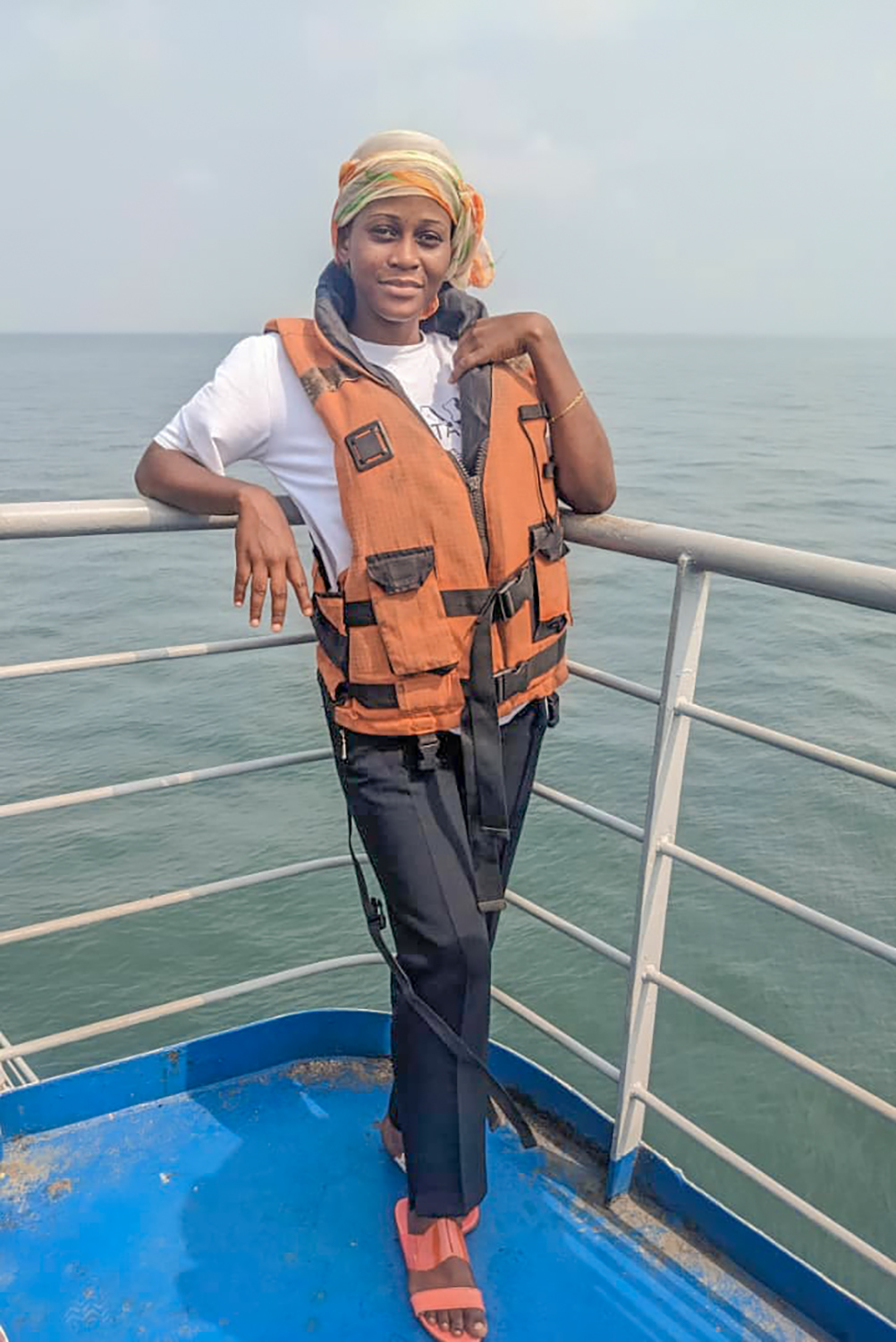
Since then, her weekly TV programme, Nature’s Corner, has increasingly focused on IUU fishing and ocean-related issues. “The fight against IUU fishing in Cameroon cannot be won without journalists,” Chale emphasises, adding that by raising awareness and exposing wrongdoing, journalists create accountability and pressure authorities to take action.
Moreover, journalists have been instrumental in supporting the government and non-governmental organisations in their battle against IUU fishing, documenting progress and achievements since the EU imposed a ban on Cameroon’s fisheries. “Journalists reporting on advancements in the fight against IUU fishing enhance Cameroon’s credibility in the international community, a crucial step in restoring the country’s image,” notes Ngounou, another EJF training beneficiary who has authored several articles on IUU fishing.
Cameroon has made notable strides in combating IUU fishing, including the freezing of fishing vessel registrations under its flag and auditing registration procedures to ensure transparency. Additionally, the nation’s fishing legislation has been revised to align with international regulations, pending parliamentary approval. These strides are just one click away thanks to the efforts local journalists are putting in to shine the light on IUU fishing in Cameroon.
Despite efforts to combat IUU fishing in Cameroon's waters, between January and September 2023, over XAF 6 billion ($10 million) worth of fish still entered the EU from Cameroon. This raises serious concerns about the effectiveness of the EU's ban and the ongoing challenges in curbing illegal fishing practices in Cameroon.
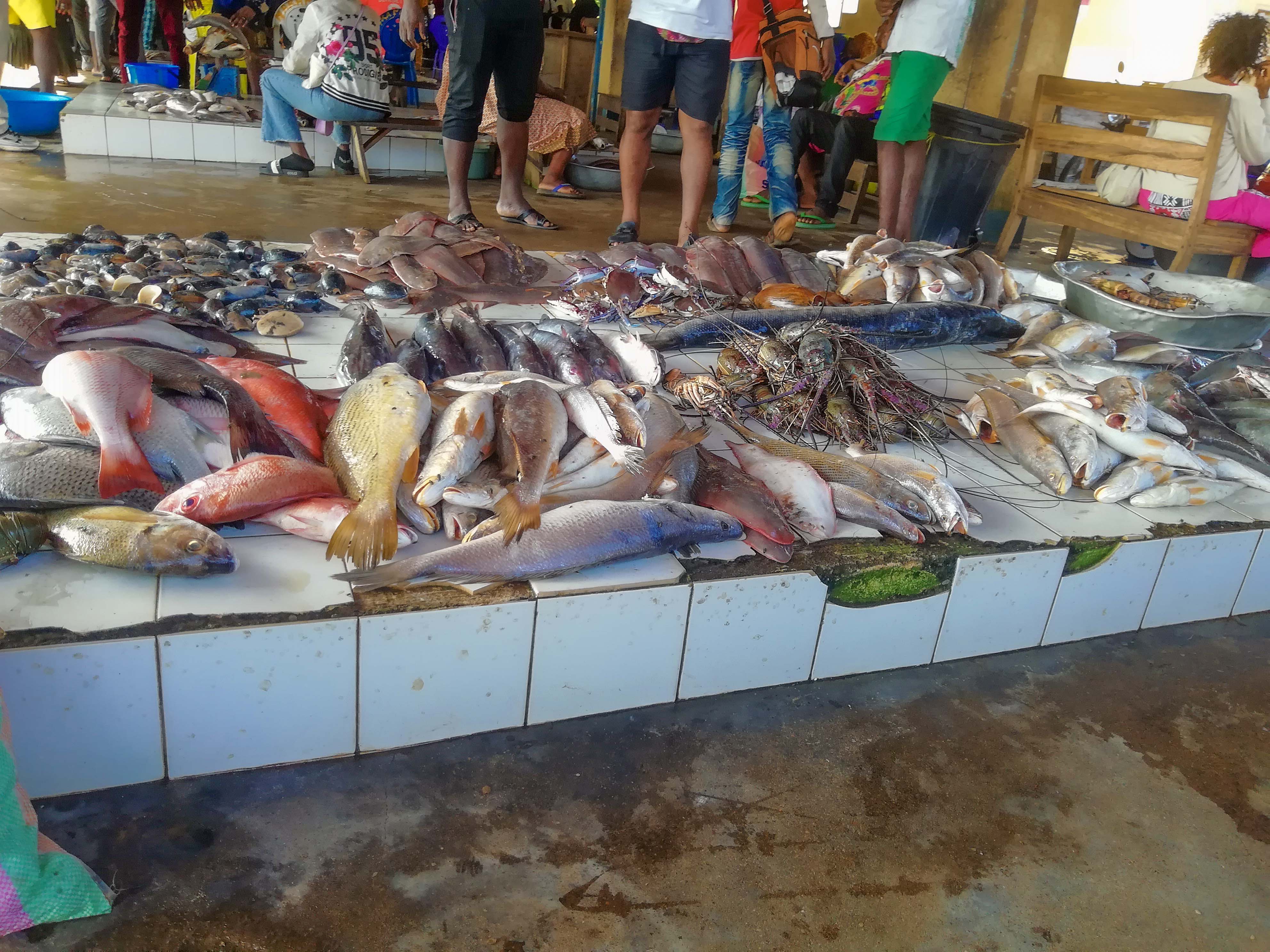
To keep the momentum in reporting IUU fishing and other ocean-related issues, journalists have formed the Cameroon Network of Ocean Journalists, comprising both French and English-speaking members, given the bilingual nature of Cameroon. “Through this network,” says Nkemngu, “journalists in Cameroon now have the chance to coordinate and collaborate to pursue ambitious, impactful stories about IUU fishing and other ocean issues.” As a founding member, he believes this will create funding opportunities for members in the long run, potentially addressing the resource shortages that have deterred journalists from covering ocean-related issues.
Chale, who is also a member of this network, is elevating her newfound passion for ocean reporting and storytelling to new depths. Once a distant dream, she is taking scuba diving lessons to enhance her narratives with firsthand experiences. Her first dive in the Indian Ocean off South Africa left her in awe, sparking her imagination about the depths of Cameroon’s waters. “What I saw beneath the ocean was so colourful. The corals and the fish left me mesmerised,” she recalls. “It’s like a world of its own, filled with stories and a serene beauty.” Chale aspires to become a certified diver and explore the hidden tales beneath Cameroon’s waters.
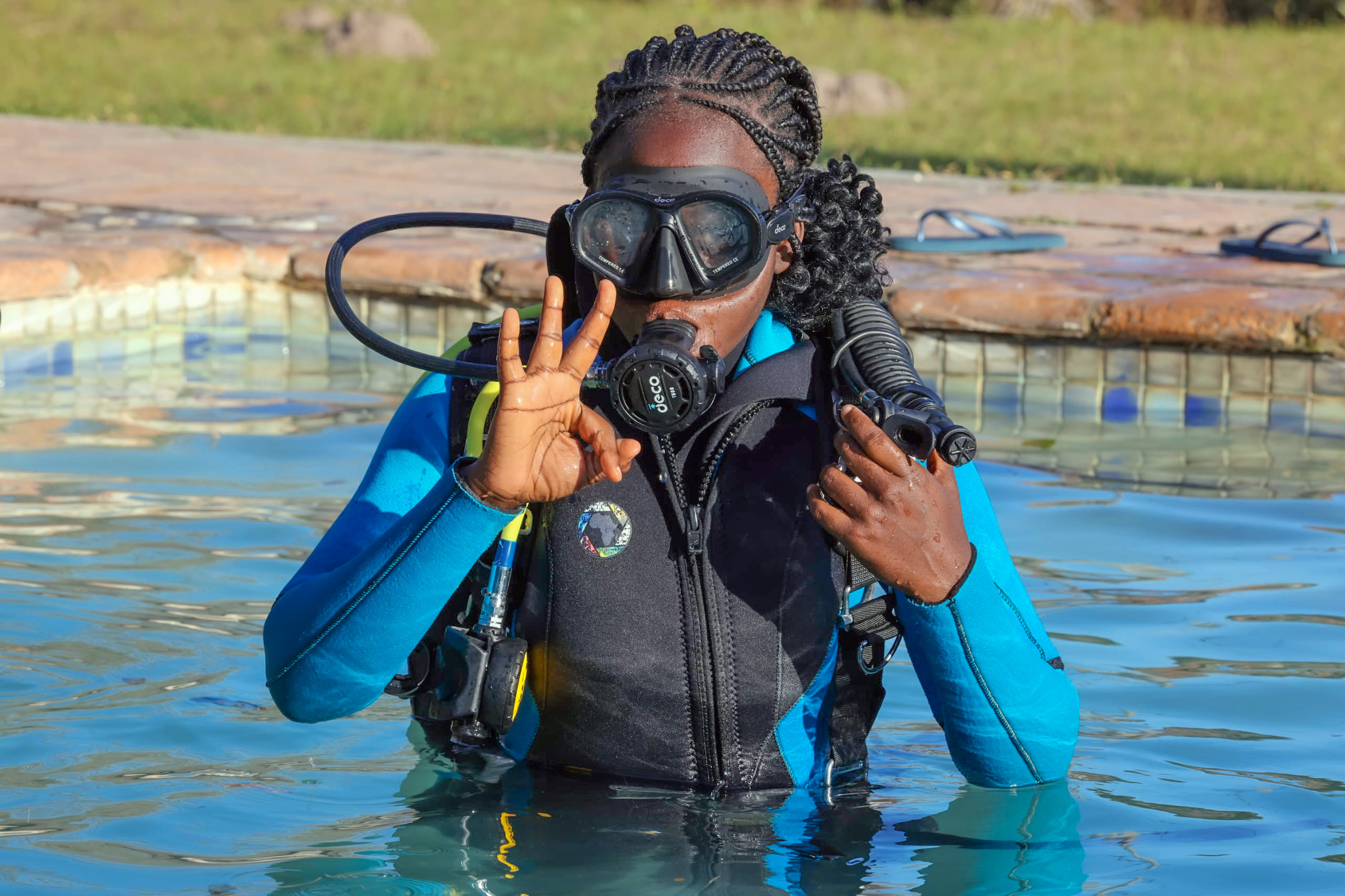
The positive feedback she receives for her work on IUU fishing and ocean issues fuels her motivation to do even more. “People are becoming increasingly interested in what’s happening in our waters, just like other environmental issues,” she notes.
For Nkemngu, the challenge is to sustain the current momentum around ocean reporting in Cameroon. He is collaborating with the Department of Journalism and Mass Communications at the University of Buea to establish what he calls the Climate Journalism Incubation Hub. Currently pursuing his doctoral studies in this department, he envisions the hub as a training centre for young, passionate journalists to address various environmental issues in Cameroon, especially those related to the ocean, which he feels are often overlooked.
As discussions around IUU fishing gained momentum in Cameroon, Precious began to reflect on her role in addressing this issue, not just locally but across Africa, and in sharing African ocean stories from an authentic perspective
Looking Beyond Cameroon’s Shores
Like Chale, Ashunganya Precious only became aware of IUU fishing in June 2023. The 22-year-old storyteller and conservation filmmaker initially viewed the ocean as merely a source of her favourite seafood. “I didn't know much was going on in there,” Precious tells AJR in a phone interview.
As discussions around IUU fishing gained momentum in Cameroon, Precious began to reflect on her role in addressing this issue, not just locally but across Africa, and in sharing African ocean stories from an authentic perspective.
A chance and closer encounter with IUU fishing discussions at the 2023 Street Whale Festival ignited a passion within her. Precious, who is also a fellow with South Africa’s Nature, Environment and Wildlife Filmmakers (NEWF), laments that the voices of Africans are often missing in discussions about the ocean, which motivated her to create a documentary series to highlight these stories and inspire ocean protection. “The best way to protect our oceans is by telling their stories, because people only care about what they know,” she explains.
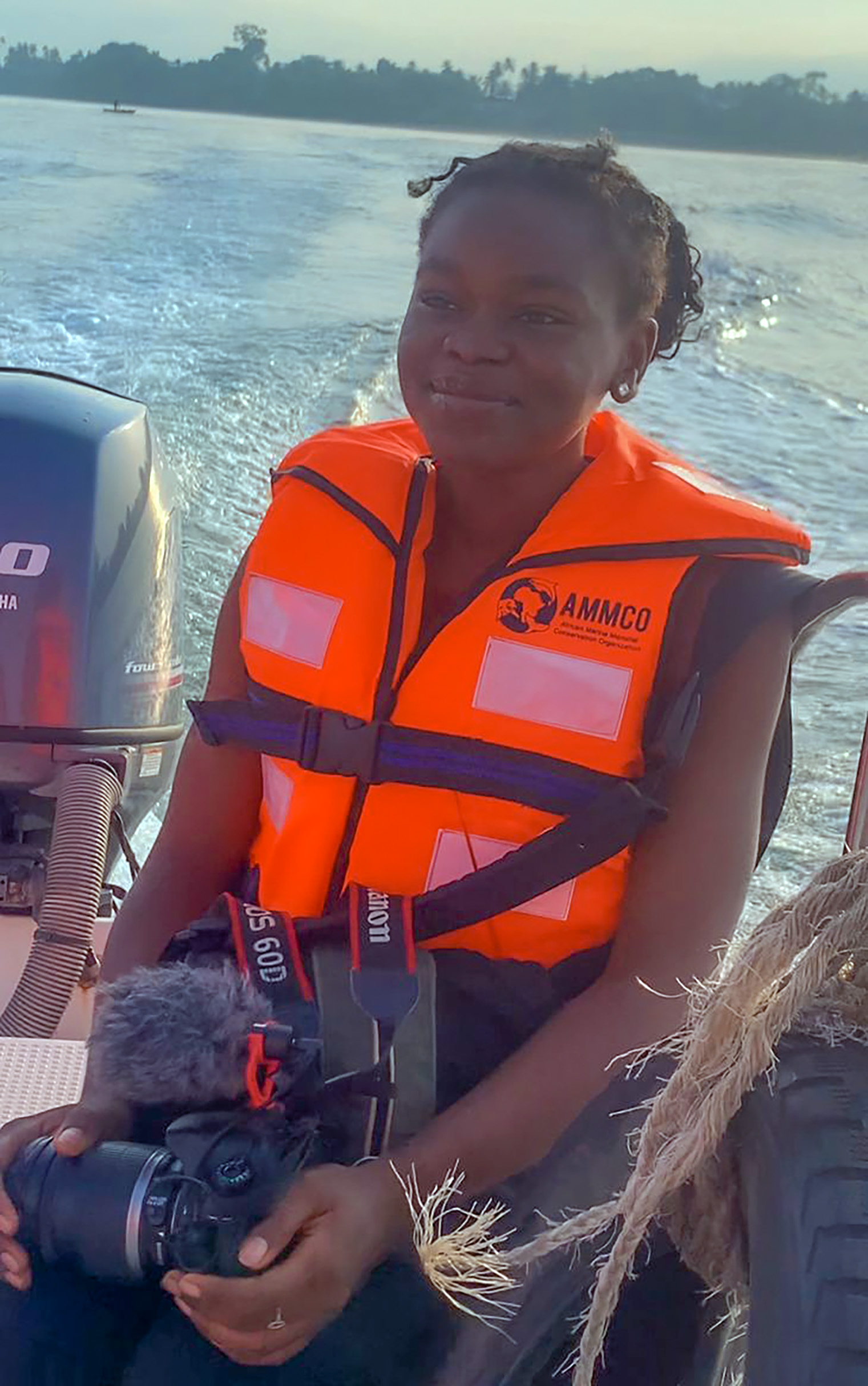
Precious has been making waves since she dipped her legs into new waters. Just a year after launching her "Ocean Stories" series, one episode filmed in South Africa won an award at the Cameroon International Film Festival (CAMIFF) in April 2024. “I shot this episode with a phone," she exclaims with a deep sense of accomplishment.
Precious believes storytelling is crucial not only for fighting IUU fishing but also for advocating for local communities disproportionately affected by it. “Our storytelling must target the major pressures and forces that harm local people and our oceans,” she emphasises.
What makes Precious' journey even more fascinating is her newfound passion for scuba diving. “You can't tell the stories of things you don't see,” she asserts. Now diving deep into Africa’s waters, she uncovers stories that represent local voices and inspire conservation efforts.
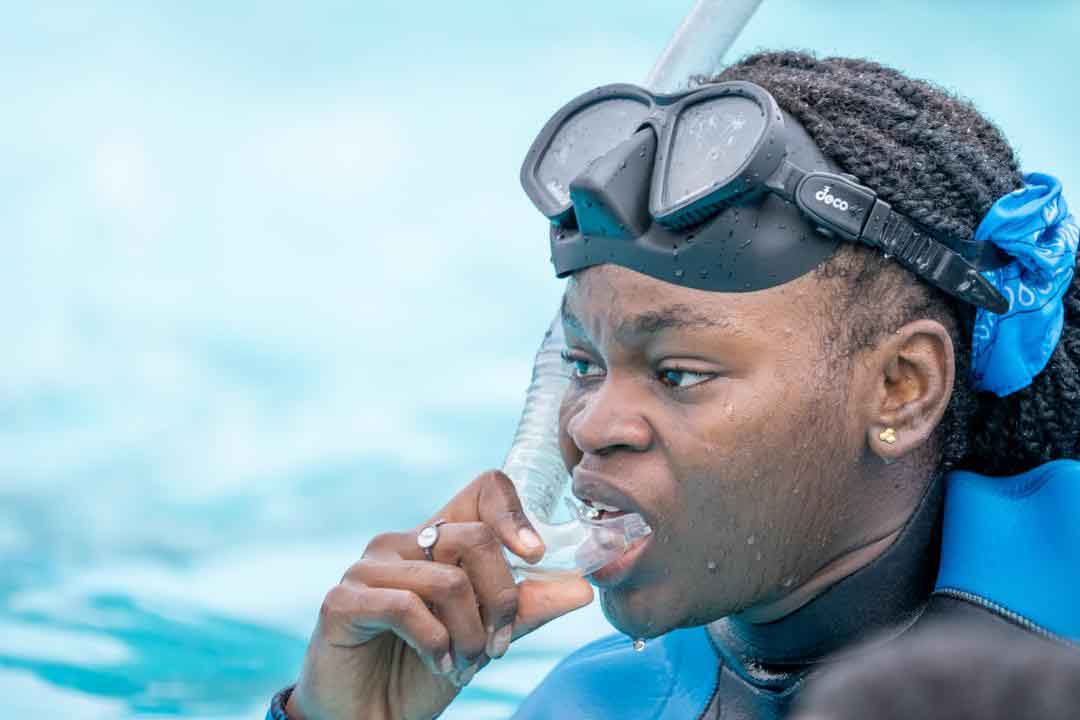
While the EU’s red card to Cameroon has undeniably tarnished its image, it has paradoxically unlocked the potential of Cameroonian journalists and ignited a movement poised to reshape the future. Through this shared struggle, journalists, scientists, conservationists, storytellers, and government officials have united, paving the way for a new era of ocean advocacy.
